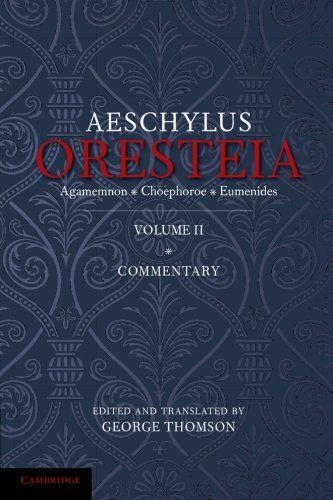
The Oresteia of Aeschylus
First published in 1938, this book forms the second part of a two-volume edition of the Oresteia. The first volume contains the original Greek text of the Oresteia with a facing-page English translation, notes and a detailed introduction. This second volume is largely composed of a comprehensive textual commentary. A metrical appendix is also provided. This book will be of value to anyone with an interest in the works of Aeschylus and classical literature.
Reviews
Paige Leitner@pleitner
Ceej Manaloto@sage_a_saga
Zeke Taylor@zt1230
vera@tragedian
madina@humaintain
Christine Joelle Valisno Manaloto@springscribbles
Liam Holbrook@lehol
peyton mckenzie@bibliotherapy
Taylor Lapeyre@taylor
Lotus@lotusu
Ethan Evans@ethan-evans
louise@ouie
ghost girl in satin@ghostgirlinsatin
Will Vunderink@willvunderink
peyton mckenzie@bibliotherapy
anu@ankitha
Michael Springer@djinn-n-juice
Maite Alarcon Leon@chillmee
Cat Josephson@themorrigan12
peyton mckenzie@bibliotherapy
Ana Hein@anahein99
Jesse Morley@jessemorley
Amanda@tearex
Isabella@jeanvaljeune
Highlights
Paige Leitner@pleitner
Paige Leitner@pleitner